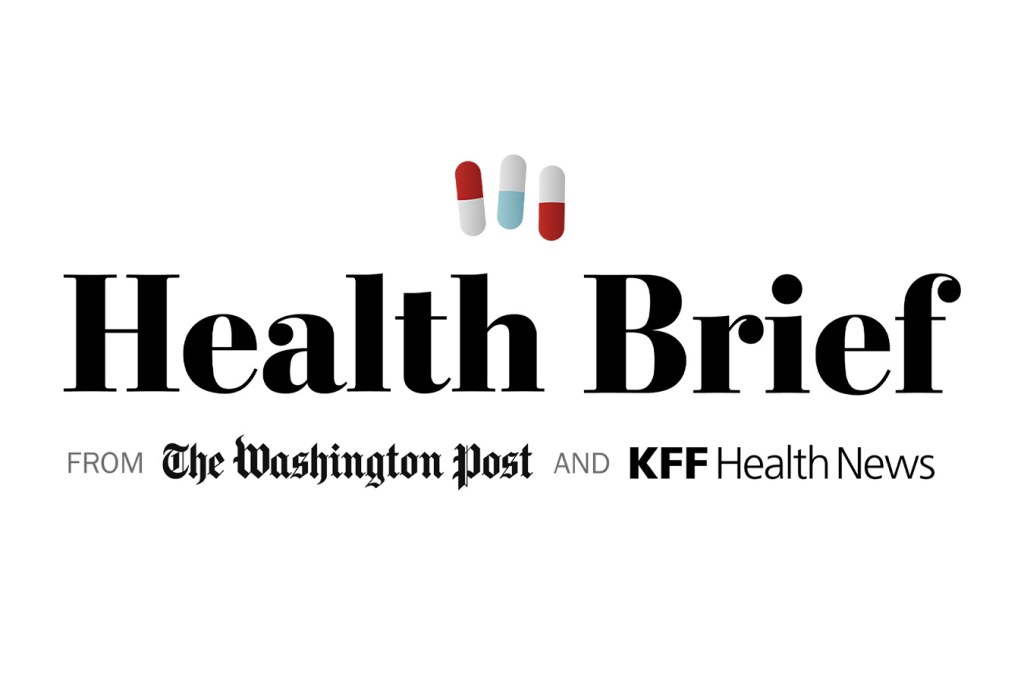As if the COVID-19 pandemic wasn’t enough, we also have flu season—and getting your flu shot—on the horizon. This year’s flu season, like last year’s, will probably be a little different than those in the past. But you still need to get your flu vaccine.
The flu may seem like a relatively minor illness, and for most healthy adults it is, but in some cases it can be serious, the Centers for Disease Control and Prevention (CDC) explain. And even if it’s not severe for you, once you have the flu, you can pass it along to other more vulnerable people and put them at risk for serious complications.
Getting the flu vaccine also means you’re less likely to be in the position of having COVID-like flu symptoms (such as fever, fatigue, and a sore throat) and, therefore, less likely to need to get tested, Adam Ratner, M.D., director of pediatric infectious diseases at NYU Langone’s Hassenfeld Children’s Hospital, tells SELF.
So, of course, there’s the obvious benefit of getting the vaccine—that you’re reducing your personal risk for the flu—and there are the altruistic benefits of protecting those around you as well as reserving much-needed hospital beds for those with COVID-19. (An especially important consideration amid the current delta-variant-fueled surge, which has overwhelmed ICUs in several states.) But thanks to the pandemic, you may have to take some extra steps to get your flu vaccine this year. Here’s what you need to know.
1. Who should get a flu vaccine?
Everyone who’s six months and older should get the flu vaccine, the CDC says, except in a few rare cases (such as an allergy to an ingredient in the vaccine). It’s important that everyone who can get the vaccine—which comes in both shot and nasal spray forms this year—actually gets it, but it’s especially important for those who are at a higher risk for developing more severe consequences of the flu, including those with asthma, heart disease, or diabetes as well as older adults and pregnant people.
2. When should I get my flu vaccine?
The ideal time to get the vaccine is, of course, before the flu season hits, James D. Cherry, M.D., MSc, distinguished research professor of pediatrics at the David Geffen School of Medicine at UCLA, tells SELF.
Really, you should get vaccinated as soon as the vaccine becomes available to you, Waleed Javaid, M.D., director of infection prevention and control at Mount Sinai Downtown, tells SELF. He agrees with the CDC’s recommendation to get the vaccine in early fall, around September or early October ideally, and definitely by the end of October.
You can still get a flu shot if you miss that window, but it’s best to just get it done early so you can be sure you’re vaccinated before the flu season hits.
3. Can I get my COVID-19 vaccine and flu vaccine at the same time?
Yes, you absolutely can, Dr. Javaid says. Last year, the CDC recommended waiting 14 days between getting a COVID-19 shot and getting a flu vaccine out of an abundance of caution. But this year, there’s enough data about the COVID-19 vaccines that, coupled with our understanding about giving other vaccines together, health experts (including the CDC) say it’s okay to get both at the same time.
“But what are you waiting for? You should get the COVID shot ASAP, like yesterday,” Dr. Javaid says. “Don’t wait for your flu shot to get your COVID-19 shot.”
If you’re immunocompromised, you should get your flu vaccine as soon as possible. And, because you might be eligible for a third COVID-19 vaccine shot, you should talk with your health care provider about how best to time them, Dr. Javaid explains.
4. Where can my kids get their flu vaccine this year?
Despite the fact that both the CDC and the American Academy of Pediatrics (AAP) recommend that children continue their usual vaccine schedule during the pandemic, the CDC saw a drop in routine vaccinations (for illnesses like measles) when stay-at-home-orders were in effect last year.
Health experts are “worried that people are skipping what are perceived as nonessential doctor’s visits,” such as immunization visits, Dr. Ratner says. But, as the CDC says, well-child visits and vaccinations are still essential right now.
Luckily, for kids who normally get their flu vaccine at regular pediatrician appointments, it will likely be a relatively straightforward process to get them in for a flu shot this year with their usual doctor, Dr. Ratner says.
Children can also get a flu vaccine at drugstores, but some stores may not administer the vaccines to especially young children—even with a doctor’s prescription—for lots of complicated reasons, CNN explains. (Walgreens and CVS, for instance, don’t administer to children under three in most states). If you’re not sure what your pharmacy’s policy is, it’s best to call ahead to see what their restrictions are.
5. I normally get my flu vaccine at work, but now I’m working from home. Where can I get it?
If you, like many people, typically relied on your workplace to provide flu vaccines pre-pandemic, you should take the time to find out if you’ll be able to get them there this year. If your office isn’t back to in-person work, you may need to make other plans. And if that’s the case, you won’t have the usual reminders from your office that flu-shot day is coming, so know that you’ll have to be proactive about making it happen yourself, Dr. Ratner says.
You can absolutely get your flu vaccine at a doctor’s office, but unlike kids, adults may not have a go-to physician. And if you don’t already have a regular health care provider, making an appointment for a flu shot may be a daunting process.
If you prefer, you can instead get your flu vaccine at many drugstores (such as CVS, Duane Reade, Walgreens, etc.) or urgent care centers. You can also check your local health department’s website for flu shot locations. (Here’s NYC’s site as an example.)
6. Where can I get a flu vaccine without insurance?
If you don’t have a job or health insurance right now, it’s understandable that getting a flu vaccine may not be your top priority, Dr. Ratner says. But there are actually a few ways to get no- or low-cost flu shots through your local public health department, he explains. For instance, most pharmacies, clinics, and urgent care centers offer flu shots at a relatively low cost for those without insurance (ranging from about $20 to $40, depending on the form of the vaccine and where you’re getting it).
Additionally, in many cities and states, the local health department will fund vaccine drives that might occur at schools, hospitals, or other health centers. However, the pandemic might make those difficult to carry out this year, so it’s worth checking with your local health department to see what their specific plans are.
Also worth noting: The CDC’s Vaccine for Children program provides free vaccines via local health services for kids who otherwise wouldn’t be able to get them due to cost.
7. Is it safer to get my flu shot at a doctor’s office than, say, a pharmacy or urgent care center?
Whether you’re going to a doctor’s office, pharmacy, or urgent care center, “take the same precautions that you would if you were going to a grocery store,” Dr. Ratner says, meaning you should wear your mask, practice good hand hygiene (and bring your hand sanitizer with you), and, if possible, avoid going at the busiest times of the day. You can call and ask your doctor’s office, local drug store, or urgent care center if they have any times of day that are usually less busy, he says.
If you can, try to schedule your flu vaccine at the pharmacy, urgent care, or wherever you decide to go, Dr. Javaid says, which is a service many locations are already offering. That will help you avoid unnecessary crowds and keep you from having to wait around with others.
But, ultimately, as long as everyone is keeping up the health safety behaviors they should be, there won’t be any huge difference in risk related to getting your vaccine in different places, Dr. Ratner says, even if there’s a line. Some states and cities are even offering drive-through vaccinations. And we know that the benefits of getting the flu shot will likely outweigh the risks, especially if people are taking the appropriate precautions.
8. Will the precautions we take to prevent the spread of COVID-19 also help with the flu?
Yes! All the public health tools we’re currently using to reduce the spread of the coronavirus—wearing masks, washing and sanitizing our hands all the time, and social distancing—can also help to keep the flu at bay, Dr. Cherry says. Let’s not forget that masks also worked a hundred years ago during the 1918 flu pandemic, he notes.
And, in fact, that’s basically what happened last year, Dr. Javaid says. The flu season essentially disappeared, he says, which is a trend that started just before April 3, when the CDC recommended the general public wear masks. Some people started to wear masks before that, but many were taking other measures, too, like washing their hands frequently, avoiding crowds, and being more diligent about isolating when feeling sick. There was also a record number of flu vaccines distributed during the last flu season, the CDC says. All of those measures together likely helped significantly curb flu activity.
But because we’re still spending more time at home (especially when the weather gets colder), we may see that people who share living spaces spread the flu to each other more easily, Dr. Ratner says. That underscores just how important it is for everyone in a particular household to keep up those COVID-19 and flu prevention behaviors—for their health and the health of everyone they live with.
So, can we expect to continue wearing masks seasonally? “It’s possible, and I certainly hope so,” Dr. Javaid says.
9. How has the COVID-19 pandemic changed the normal patterns of seasonal illness, like the flu?
Researchers are still figuring out exactly how seasonal respiratory illnesses may have shifted, but the current data suggests that the precautions we took to prevent the spread of COVID-19 significantly dampened flu activity last year and shifted seasonal respiratory syncytial virus (RSV) patterns. But it wasn’t just about masks and working from home.
Before the pandemic, we’d just “been living with” many respiratory illnesses and simply accepted them as normal wintertime diseases, Dr. Javaid says. During the pandemic, however, people became hyperaware of respiratory illnesses and, generally, took action quickly to keep themselves safe. Rather than forcing ourselves to go to work or out with friends even though we have a slight sore throat because it’s “probably just a cold,” many of us would now much rather err on the side of caution and stay home.
That increased general awareness about these illnesses, plus the relatively shorter incubation time seen in illnesses like the flu, may have essentially wiped it out during the last flu season, Dr. Javaid says. “Flu has a very short incubation period, like one to four days, whereas COVID is about four to five days and onwards,” he says. That means that, if someone gets sick with the flu, their symptoms will be noticeable and they’ll be able to take action and isolate themselves earlier on in the illness than with COVID-19. In that case, they’re also likely to expose fewer people. And that has advantages for contact tracing as well; it’s much easier to remember who you saw in the last day or two than it is to recall everything from the last two weeks.
For now, experts are still working on figuring out exactly how everything shook out last flu season and what we can expect th is year. But one thing that’s for sure is that, if you haven’t already, it’s time to get your flu vaccine.
Related:
Note: This article have been indexed to our site. We do not claim ownership or copyright of any of the content above. To see the article at original source Click Here













